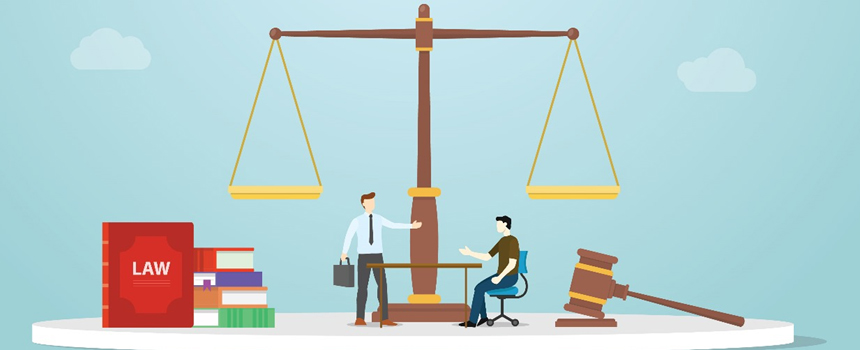Call for papers

Call for papers
Speed, Scope, Scale. In Search of Solutions to the Internet’s Challenging Legal Nature
15-16 August 2024
Center for Studies on Freedom of Expression (CELE)
Universidad de Palermo
Buenos Aires, Argentina
Volume, speed and accessibility are among the many features that the internet brought about that significantly changed the information ecosystem. The amount of information shared online and the reach of such information is unprecedented and has been deemed a democratizing force. And the ability to keep and find information online has dramatically impacted our access to information, political participation, research and learning abilities, our hiring practices, our due diligence, etc. While hard rules over freedom of expression, content and dissemination have remained mostly unchanged, volume, speed and accessibility are novel. These issues pose legal questions that have yet to find a satisfying answer, specially when regulatory proposals—-such as the Digital Services Act or the UNESCO regulatory guidelines—-take traffic and speed as things to consider when developing risk mitigation strategies [^1].
Traditionally, we have looked at volume, speed and accessibility to assess damages separately from the legal or illegal nature of the content, judged under different rules or principles. So, for instance, a judge may find a defamatory comment actionable and, after said finding, he or she could assess damages based on the impact of the defamation, its reach, its dissemination, its permanence within the damaged individual’s community. A comment made in private in a bar would be assessed differently than one published in the town’s newspaper. But the link between content and damages would be necessary in our traditional approach.
However, it is increasingly the case that the volume, speed, and accessibility on the Internet are thought to produce damages that are independent from the content itself. This is what happens, for instance, when the accumulation of shocking or disturbing yet protected individual pieces of content may amount to a kind of harm that is simply greater than the sum of all its parts. This is what happens, for example, when coordinated criticism against someone produces a chilling effect, when that person perceives this criticism as veiled threats, etc. We are yet to find good legal answers to these forms of harms that we might, quite reasonably, want to see addressed or prevented one way or the other.
Accessibility also poses challenges. The fact that information uploaded to the Internet seems eternal has created issues that did not exist in the 20th century, where information tended to become harder to access as it became older. Newspaper records were accessible to researchers and journalists, in public libraries or private records, but they were difficult to navigate and only a few actually accessed them. Therefore, that old piece of news that reported a brawl in a bar naming those involved would soon be forgotten. Now that piece of news may be the first search result on the unfortunate patron’s name. Although some legal systems have attempted to deal with this problem through the so-called “right to be forgotten”, crafting out a legal solution within the data protection regime, the underpinnings of this special legal framework were not designed for these purposes and its extension to these cases create many new problems and dilemmas, especially from a freedom of expression, access to information, and democratic accountability point of view.
Speed also creates problems of its own. Legal processes take time. Assessing legality or illegality and guaranteeing due process takes time. Critical analysis takes time. Take the pandemic for example: the fact that a handful of individuals in different latitudes doubt the usefulness of a vaccine would not be so problematic except that in the Internet era, their skepticism travels fast and—-depending on the amount of people who subscribes to it—-may constitute a serious threat to public health.
The legal field has, until now, failed to produce proper answers to these new problems. Courts, legislators, and advocates have spent most of their time looking for ways to factor speed, accessibility (or permanence), and volume into existing law -or laws- without properly addressing the shortcomings of the existing western legal framework. It is not unusual to find court decisions or bills of law tweaking and tuning standards to account for these factors, usually addressing them indirectly or opaquely and without addressing the potential consequences of this extensions to the pillars of modern constitutional and civil law as well as the underpinnings in modern philosophy of law.
This call for papers, to be presented in a workshop at the Universidad de Palermo, seeks to produce novel, critical and creative approaches that may contribute to a better understanding of the problems and their potential solutions. The following may serve as examples of the kinds of questions we are interested in addressing through this call.
- How do volume, speed and accessibility relate to the traditional constitutional standards developed on freedom of expression during the 20th century? Are these challenged or ratified by these novel problems; should they be revisited or changed?
- How do these problems affect our philosophical notions of causality, obligations, and responsibility? Do we need further conceptual developments under their light?
- Liability currently requires causality, attribution and intention (negligence or intent). Could there be other structures for selected scenarios? What could those look like? What questions would that raise from a constitutional and philosophical point of view?
- Does the difference between reproachable content and damages still make sense in the Internet age? Could the analysis of damages be separated from the content itself? What would the implications be for freedom of expression or legal certainty?
- So far the legal field has addressed these issues on a case by case basis.
- How should the universe of cases affected by these features be defined or assessed? Are there alternative means to define and craft liability for these cases? What principles could guide us in thinking about liability without strict causality? How should protected societal values be protected differently to incorporate different kinds of liabilities for content on the internet?
- How should the features of volume, speed, and accessibility be protected and distinguished from the potential risks they create? What kinds of remedies could be created to deal only with the latter and not affect the former?
Guidelines for Submissions
Applicants are invited to submit a non-anonymized developed abstract (maximum 600 words), in Spanish or English, in PDF format by email to cele@palermo.edu no later than 15 March 2024. Applicants will be informed of our decision no later than the first week of April 2024. Selected abstracts will be invited to an in person seminar in Buenos Aires, Argentina, to be held in August 2024. Full papers or advanced drafts—-in Spanish or English—-will be expected by early July 2024. Travel support may be available upon request on a first come first served basis.
[^1]: The full diagnosis giving rise to this call is being addressed in an upcoming paper by CELE’s Agustina Del Campo, which will be presented in the The DSA and Platform Regulation Conference to be held in the University of Amsterdam on 15-16 February 2024. A blogpost discussing these issues by the same author was published in the Carnegie Endowment for Democracy New Digital Dilemmas series on November 2023, available here. Ver todas las noticias




